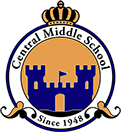How can school leaders sustain the positive efforts toward creating inclusive school environments?
Page 11: Improve and Expand
 As with most major school changes, creating an inclusive school environment is an ongoing process that can take many years to complete. Although it is important to celebrate short-term wins, it is critical that the change toward inclusion does not lose momentum. In order to keep this change effort moving forward, the principal and the guiding team need to refine procedures and build leadership capacity.
As with most major school changes, creating an inclusive school environment is an ongoing process that can take many years to complete. Although it is important to celebrate short-term wins, it is critical that the change toward inclusion does not lose momentum. In order to keep this change effort moving forward, the principal and the guiding team need to refine procedures and build leadership capacity.
Refine Procedures
Keeping in mind that creating an inclusive school environment may take many years to accomplish, the guiding team should be sure to set aside time on a regular basis, at least annually, to reflect on their efforts thus far. During this time, they can revisit their successes and failures. As part of their examination, they should consider the following questions.
- What worked?
- What did not?
- How can we use this information to improve our efforts?
If their efforts are successful, the principal and guiding team can congratulate themselves for what they have accomplished. Regardless of their successes, the team should make revisions to improve upon the processes and procedures that are in place and to add new goals.
Build Leadership Capacity
Building the capacity of … schools involves broadening our view of what leadership means and who leaders are.
Up to this point, the principal and the guiding team have exerted a lot of time and energy to create an inclusive school environment. Although these individuals may feel that it is easier to perform tasks themselves than it is to train other people to do them, in practice doing so often leads to feelings of exhaustion or of being overburdened. Instead, the guiding team can recruit and train other stakeholders to assume leadership positions and to be responsible for actions that contribute to the success of the overall change effort. One strategy for doing this is to have each team member train an individual who can serve as an alternate in his or her absence. As the guiding team identifies more leaders, they can expand their efforts to create an inclusive school.
Mark Wilson talks about his own experience building leadership capacity (time: 0:42).

Mark Wilson
Principal, Morgan County High School
Georgia
Transcript: Mark Wilson
It started with a small group of people close to me, assistant principals, some teachers. Over the course of time, seven years later we have a leadership team that makes decisions that govern the school and determine what we do. I didn’t even facilitate the leadership meeting that we had this year. I sat in the back of the room and made a comment here and there, but we’ve evolved from where I was trying to lead people to a vision to where we are now, which is where it’s everybody’s vision. We’re very deliberate in shared decision making. Ideas come just as often from students and from teachers as they do from administrators.
For Your Information
During the change process, principals should be attentive to the needs of the staff. They must nurture the guiding team and others in the school who are carrying out the steps in the action plan. Implementing change can be taxing and time-intensive and staff need the opportunity to catch their breath.
 At the end of the school year, and approximately five months after beginning to implement the action plan, Ms. Lawrence and the guiding team reflect on their efforts to create an inclusive school environment. They discuss what worked, what did not work, and how to improve their efforts.
At the end of the school year, and approximately five months after beginning to implement the action plan, Ms. Lawrence and the guiding team reflect on their efforts to create an inclusive school environment. They discuss what worked, what did not work, and how to improve their efforts.
Central Middle School
What worked well?
- Strategies to increase involvement of parents
- Common planning time
- PD to improve the reading instruction of teachers
What did not work well?
- Volunteers were not able to provide adequate support for struggling readers
- The 7th-grade teachers who served as mentors did not feel comfortable teaching their colleagues who have more teaching experience
How can we improve our efforts?
- Though PD was valuable, follow-up training and ongoing coaching would help the teachers apply the strategies in the classrooms.
- The students enjoyed working with the volunteers, but the volunteers need more training in effective reading strategies.
- Investigate strategies that would improve the mentoring efforts of the 7th-grade teachers with veteran teachers
Ms. Lawrence is particularly excited to see leadership skills emerge from almost every member of the team. They are learning so much—how to use data for decision making, how to work with parents and the community to gain support, how to asses and find resources for addressing the professional development needs of their peers, and how to build and maintain strong teams across the school. Ms. Lawrence is growing more confident every day that if for some reason she is not at CMS next year, the team has the skills to keep the school moving toward their vision of inclusion.
Activity
As a principal, how would you build leadership capacity among your staff to address the identified problem? How would this increased leadership capacity affect your change effort?